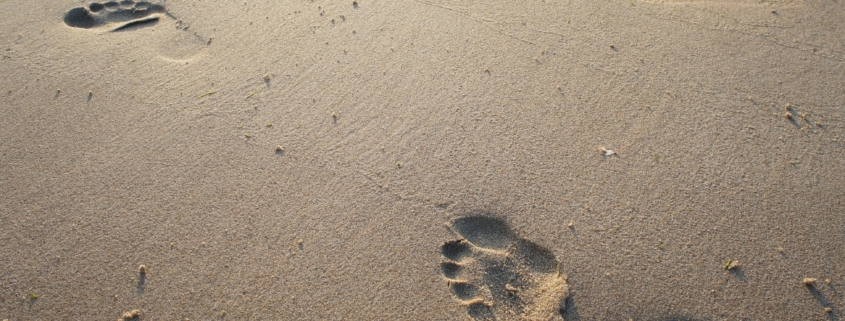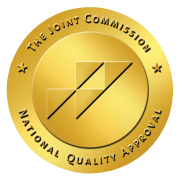Conquer Body Image Issues, Reclaim Your Summer (and Beyond!)
When I was nine years old, I dreaded going to the beach in the summertime. Visiting my grandmother’s beautiful home in Laguna Beach should have been exciting, fun, and carefree for a young California girl, but to me, the beach meant one thing. Wearing a swimsuit. Unlike other girls my age, my swim attire was not a floral patterned one-piece or two-piece. No, I armored up for the beach in a long sleeve rash guard and board shorts bought from the little boy’s section at Target. This was the beginning of body image issues—a deeply personal topic.
The Body Shame
It wasn’t a sunburn I was afraid of; it was my body. Somehow, at nine years old I had already internalized the message that my body was “bad” and “shameful.” I didn’t want strangers at the beach to see my body, but even more devastatingly, I didn’t want to see myself.
Sadly, internalizing body shame and body image issues at a young age is a pervasive issue in our
 culture. With the rise of social media and platforms such as Instagram and TikTok, kids are gaining access to content earlier and earlier that perpetuates body dissatisfaction through comparison to unrealistic images. According to researchers Kearney-Cooke and Tieger, by 13 years old 50% of girls in the United States report being unhappy with their body; by 17, this number grows to 80%.
culture. With the rise of social media and platforms such as Instagram and TikTok, kids are gaining access to content earlier and earlier that perpetuates body dissatisfaction through comparison to unrealistic images. According to researchers Kearney-Cooke and Tieger, by 13 years old 50% of girls in the United States report being unhappy with their body; by 17, this number grows to 80%.
But make no mistake, body image issues are not just a “teenage girl phase.” These insecurities and crippling shame can follow us well into adulthood, and without the proper intervention, can even worsen as our bodies change in the natural aging process. Furthermore, in recent years we have seen a massive uptick in both male-identifying and transgender people struggling to accept their bodies. Significantly, body dysmorphia is only 0.03% less prevalent in men than women, and a shocking 16% of trans people have been diagnosed with an eating disorder.
Witnessing Body Image Distress
As a therapist specializing in eating disorders and body dysmorphia, I have witnessed the devastating effects of body image distress on both mental health and physical health. Every summer, I notice a trend of increased anxiety in my patients. Instagram, TikTok, and Facebook are flooded with diet tips and workouts for attaining a “bikini body” before the weather heats up, leaving many of us triggered and on the path to disordered eating, depression, and isolation. You don’t need a formally diagnosed eating disorder or body dysmorphia to feel the effects of societal pressure to change and manipulate your body’s natural shape or size. But it doesn’t have to be this way.
In my work with patients in mental health treatment, I have found a few simple shifts in behavior and mindset go a long way in dispelling summertime stress and inviting enjoyment back into the warmer months. Not only that, but consistent and repeated practice can help cultivate a new and supportive relationship with your body that can last through fall, winter, and many seasons to come.
Effects of Social Media on Body Shame
Unfollow, Block, Delete! – Take a look at your social media feeds. What accounts are you following right now that trigger comparison and body anxiety? Which influencers and images invoke a sense of guilt, unhealthy envy, and self-criticism? Is Susan from marketing posting about her juice cleanse again? Or maybe Bob from next door is posting his gym selfies for the tenth time this week.
This type of stimulus is not helpful. What’s worse, it’s selling a false narrative. What the influencers don’t show you is the photoshop app they use to reshape their bodies and the hours spent perfecting their angles and lighting. We also don’t get to see how cranky Susan is with her kids because she’s not properly nourishing her brain. And Bob isn’t going to post about his own body image dissatisfaction and anxiety that fuels his compulsive exercising.
Filter for Health and Acceptance
On social media, we are fed information that tricks us into believing idealism is realism. This is harmful because it leaves us constantly striving to achieve something that does not exist and feeling shameful all the while because we can’t do the impossible. Take this opportunity to curate the content you’re consuming to support healthy body acceptance and neutrality.
You don’t have to avoid social media completely to avoid triggering negative body image. There are actually several body positive and body neutral accounts that advocate for health at every size and self-acceptance. Keep an eye out for accounts that provide helpful suggestions for combating body shame and promote rejecting diet culture rather than rejecting your body.
Looking for body positive accounts to follow? Try @iweigh, @alissarumseyrd, and @mynameisjessamyn.
Practice Makes Progress – Not comfortable wearing your swimsuit to the beach? Practice wearing it around your house first! This may seem like a strange thing to do but getting comfortable in a safe place is the first step toward feeling comfortable on a beach full of strangers. Remember, you are probably judging yourself much harder than anyone else would.
Body Neutrality as an Option
While feeling positive about your body might seem like a lofty and far-off goal, a more attainable goal might be body neutrality. If you can find even a moment of feeling neutral about your body in a swimsuit, that is progress. Practicing body neutrality means acknowledging and appreciating the function of your body, rather than the form. If we can shift the focus away from deriving worth from our appearance, and instead derive worth from the soul, we can reclaim peace knowing that we are worthy regardless of the body we live in.
Next time you put on your swimsuit, practice repeating this body neutrality mantra:
My body is one of the interesting things about me.
Talk About Body Image Distress
Talk It Out – Usually our body dissatisfaction and distress come from a deep core belief about who we are. While it’s easy to blame the size and shape of our bodies as the root of all problems, the body is not the real issue here. If body image distress is becoming a pervasive and preoccupying problem in your life, it may be time to reach out to a therapist or mental health treatment center, like Lido Wellness Center.
With the help of a treatment team it becomes easier to understand that the body doesn’t need to change, the mind does! In my work with patients, I prioritize deconstructing and challenging the narratives we’ve been taught to believe about our bodies. We work together to process through the stories and experiences throughout the lifetime that have contributed to these harmful core beliefs.
When we take the time to say it out loud, we begin to hear and understand that the way we think and feel about our bodies often doesn’t originate from us. By tracking the history of our body image concerns, we can more easily identify the underlying cause. Very often, body image distress is a symptom of the real problem: trauma, fear, low self-worth, abuse, rejection, the list of possibilities goes on.
It can feel uncomfortable and scary, but talking about and processing through these deep rooted self-beliefs with a safe and supportive therapist can provide lasting relief. If we can move through the negative stories that have influenced our relationships with our bodies, we can change the narrative to claim stories that emphasize body empowerment, acceptance, and healthy self esteem.
Body Image Issues Help in Newport Beach
Though summertime is typically a season that heightens our body awareness and insecurities (especially here in Newport Beach, California), tending to our bodies’ needs and elevating gratitude for the body year round is best practice for long term healing. While these tips are helpful, it’s important to recognize that there is no quick fix to healing your relationship with yourself and your body. I know from personal experience that like any other relationship, tending to the body and mind is a daily practice.
These days, my trips to Newport beach look a whole lot different. When I step onto the hot summer sand, I’m not thinking about my body or comparing myself to the other people on the beach. I’m witnessing the majesty of the ocean, I’m smelling the brisk salt air, I’m laughing with my friends and family, and I’m enjoying the taste and texture of my seafront picnic. Sometimes, I still hear whisperings from that little girl who was afraid to be seen, and in those moments I remind her this:
Your body is your home. It is the vehicle that lets you experience the world. Let’s be grateful to the body that allows us to participate in this beautiful life.
by Chloe Horner, AMFT
Primary Therapist




